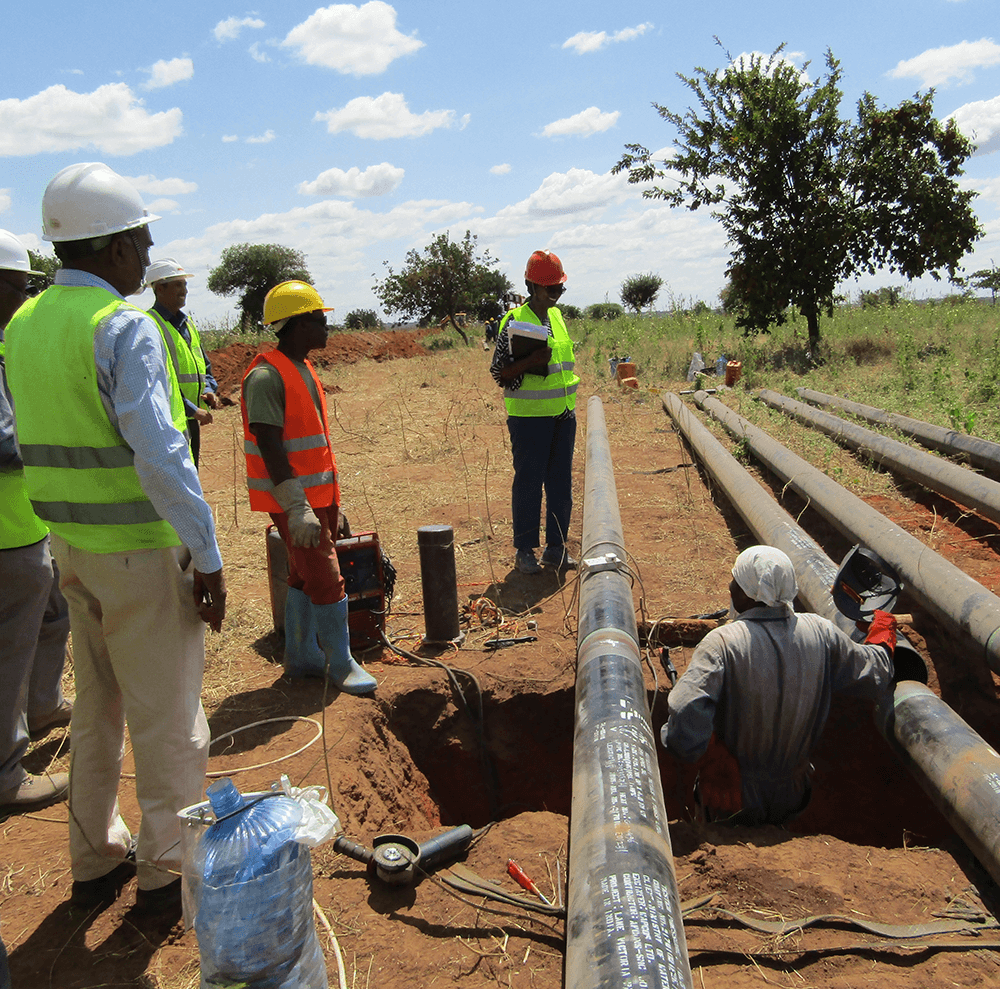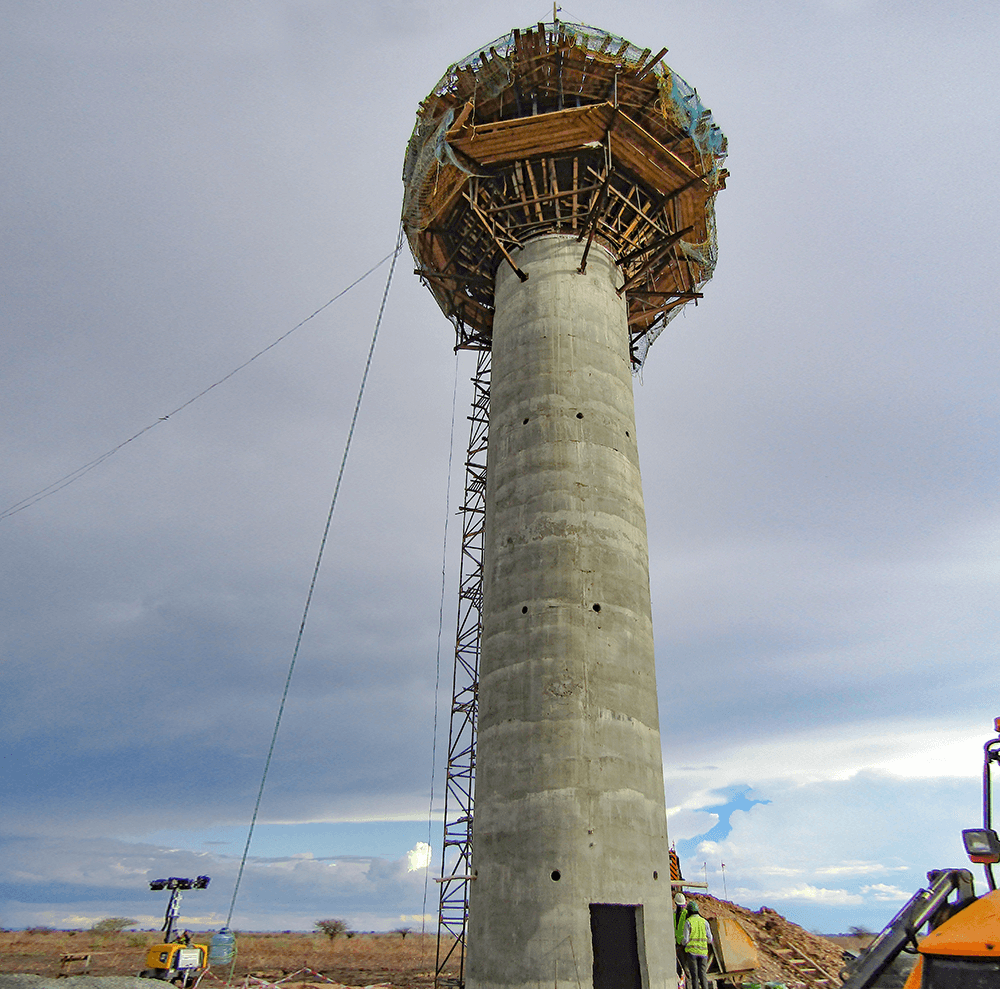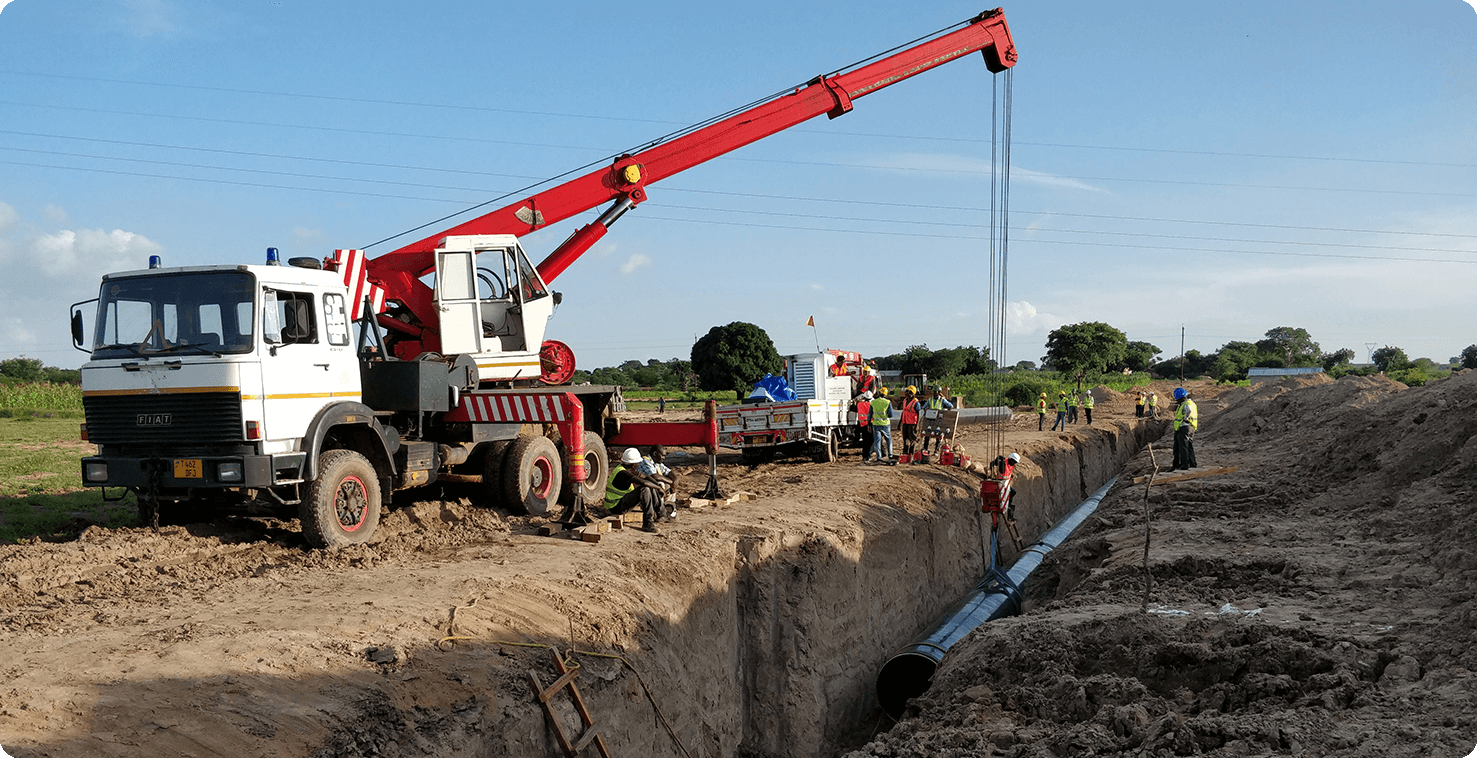When pipe dreams come true
The lack of basic access to safe water is a well-known fact in Africa. In rural parts of most African countries, villagers fetch water from local streams, swamps, ponds which increases their vulnerability to deadly water-borne diseases. It is common to spot families travelling long distances for hours on foot to collect water. And, often, the quantity of water is inadequate, and, the quality dirty.
That was a stark reality of Tanzania, too, until Afcons completed the Extension of Lake Victoria Water Supply Project, in 2020, under the aegis of the Ministry of Water & Irrigation, Govt of Tanzania. With the commissioning of this ambitious water supply project, spread over 600km, the towns of Tabora, Nzega and Iguanga now receive copious amounts of safe water. Earlier, life was hard as the villagers barely had enough water to survive.
Before & After
“Before the water pipeline project, the locals collected water from ditches, potholes, springs – in short, whatever source of water was available to them. When we first came here, we saw children carrying 20-litre cans and going from place to place to fill water. People wore dirty clothes and drank muddy water due to severe scarcity. Sadly, this was their lifestyle. The state of personal hygiene was dismal,” recounts Shambhu Singh, Project Controller of Extension of Lake Victoria Water Supply Project.
Since the commissioning of the project, water is now available 24X7 in every household in the region. With no more travel, and, more time to themselves, the families can now focus on personal hygiene and other modes of earning. This promises to bring more financial stability in the region.
“The water kiosks have become places for community gatherings, bringing people together to share ideas, thoughts, experiences. Children can now study without worrying about daily hardships. Their parents have time to be productive without worrying about water. The project has brought about a major shift in the lives and attitudes of people,” says Singh.
Project in Numbers
The Lake Victoria Water Supply Extension project consists of a complex network of water pipelines, five Ground Water Reservoirs (GSR) (2,500 Cum to 100 Cum), five Elevated Service Reservoirs (ESR) (500 Cum to 80 Cum), and, 303 Water Kiosks, spread across 603km. The water kiosks are located between clusters of 10 to 20 houses, catering to approximately 100 to 200 villagers through a single kiosk. Nearly 60,000 villagers in the region are benefitting from the project, and by 2035, approximately 3,00,000 people will benefit from the project.
Initial Hurdles
For such a massive water supply network, a massive excavation was necessary. The entire excavation was done using excavators and backhoe. But even before work could begin, land acquisition became a roadblock. After the lands were acquired with the help of special officers assigned by the client, there were instances when the team had to realign the water pipeline. This led to several change of plans, reallocation of resources and extra work. But Afconians ensured the changes were accommodated without disturbing the project completion deadline.
“We also established pipe storage yards in Nzega and Igunga towns spread over 10,000 SqM provided by the Ministry,” says Dhaval Soni, Project Manager of Extension of Lake Victoria Water Supply Project.
Perhaps, the most critical part of the project was the unavailability of construction material locally. And, since this was the first-of-its-kind project in a new business sector for Afcons, delays in sourcing of goods was expected. But despite the uncertainties, the project team was able to procure material, on time, from over 10 different countries like the US, Italy, Turkey, Czech Republic and other European countries.
Innovation Strategy
To attempt a 600km-plus water supply project on time, an innovation strategy is mandatory.
Pointing towards the most important innovation in the project, Soni says, “We used Horizontal Thrust boring machine for pipe-crossings across state roads in Tanzania. State road authority, i.e., TANROAD, opted against using open cut excavation. Around 40 locations were identified by the client where the pipe was supposed to cross the state roads.”
Using the Horizontal Thrust boring machine not only mitigated the problem, but also reduced the activity time to just four months as against an estimated time frame of one year. Plus, it saved costs of traffic diversion, road restoration, and, additional overhead expenditures.
Community Engagement
As a policy of generating local employment and skill transfer, nearly 300 locals were employed in the project. Various skill development workshops were conducted periodically for local water authority employees for understanding the pipeline network design.
“Our activities in this project were not limited to the construction work. The team proactively came forward in community engagement activities. We organised monthly HIV-AIDS awareness programmes at different locations and observed a very healthy participation. We donated food supplies for underprivileged children, and, to an orphanage in Nzega. Afcons also supported local sports teams with kits, and, organised sports camps for students,” says Soni.
Sometimes, Extreme Engineering & Construction is about challenging the landscape of an entire region. Through the Extension of Lake Victoria Water Supply project, Afcons has liberated thousands of villagers, in Tanzania, from water woes and have put them on the path of progress.






